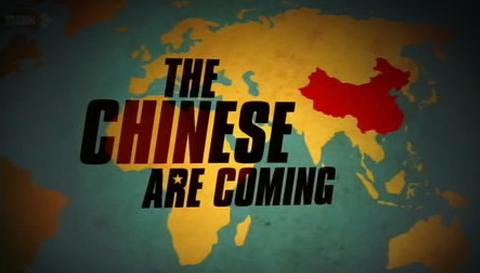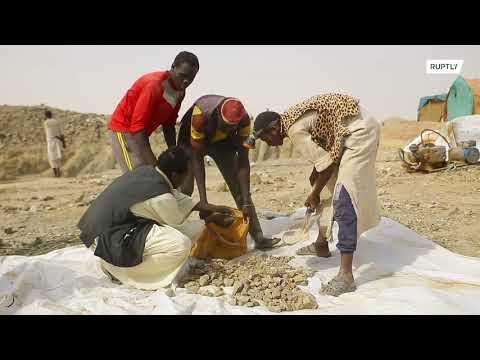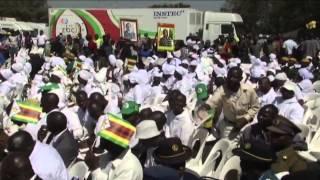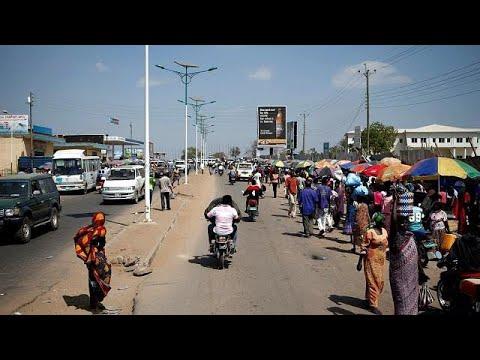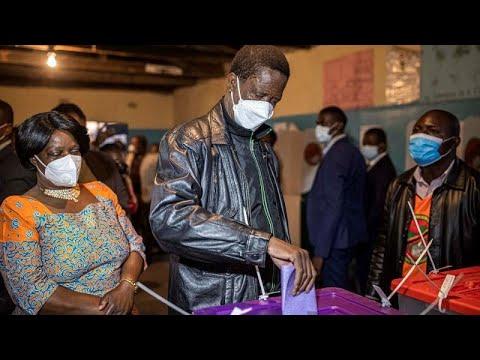A group of global leaders known as "The Elders" was in South Sudan on Saturday to lobby for peace with neighbouring Sudan ahead of South Sudan's first independence anniversary.
South African Nobel Laureate, Archbishop Desmond Tutu, led the delegation, which also included former Finnish President Martti Ahtisaari and former Irish President Mary Robinson.
Following their meeting with South Sudanese President Salva Kiir on Friday, the group travelled to Batil near the border with Sudan.
Maban county, where Batil is located, is currently home to around 120 thousand refugees, many of whom have fled fighting in Sudan.
Sudan is currently battling rebels in South Kordofan and Blue Nile.
Sudanese air strikes against South Sudan have prevented many from planting this season and have forced them to flee their homes.
Sudan has frequently accused South Sudan of supporting the rebels, a charge which South Sudan denies.
The refugee crisis in Maban is one of a host of challenges which has plagued the new nation in its first year after voting to break away from Sudan following decades of war.
Chief among those problems is its relationship with Sudan, strained heavily by a dispute over oil reserves.
Archbishop Tutu and the delegation of elders met with locals in the camps to get first-hand accounts of the fighting.
"It is important for us to know the situation on the ground," Tutu said.
"It underscores a very important part of our role which is promoting peace and stability - being able to speak to the president and saying, 'It is not acceptable at all that there should be all of this turmoil and unrest and war,'" the Archbishop said.
The Elders will leave South Sudan on Sunday, after Archbishop Tutu delivers a sermon in the country's capital Juba.
The group hopes to travel soon to Khartoum, to deliver a similar message of peace to Sudanese President Omar al Bashir.
"There is a hope that the two leaders can come together and, however difficult, begin the process of really seriously addressing stopping the violence, stopping the displacement of people and refugees and then allowing the other issues of the CPA to be dealt with."
The UN-backed CPA - Comprehensive Peace Agreement - was signed in 2005 and outlined guidance for power sharing and resource distribution between the Sudan People's Liberation Movement/Army and the Government of Sudan.
You can license this story through AP Archive: http://www.aparchive.com/metadata/youtube/2723be9355ef619b955aa7d3e9f4ab62
Find out more about AP Archive: http://www.aparchive.com/HowWeWork
- Category
- South Sudan




